More weapons and help for Ukraine: Major war developments during NATO talks
At an emergency meeting in Europe, Joe Biden has told Beijing it needs the West far more than it needs Russia and the consequences will be huge if it forgets that.
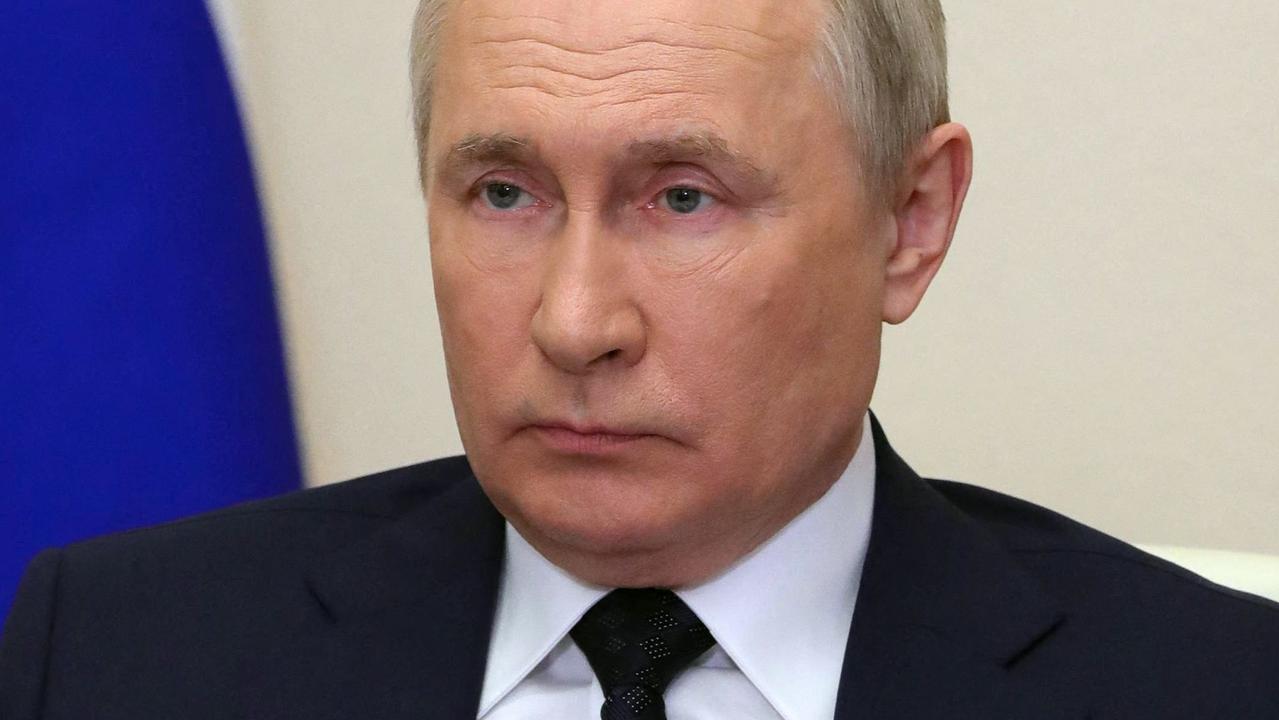
US President Joe Biden has said China would be putting itself in “serious jeopardy” should it seek to support Russia and its invasion of Ukraine.
As NATO, G7 and EU leaders met in Belgium, Mr Biden said Beijing understood that its future prosperity was tied to the west, not Russia.
Yet on Thursday, Russia and China, seemingly in unison, began comparing NATO’s military action in the former Yugoslavia in 1999 to Russia’s war in Ukraine today.
Mr Biden also said NATO “would respond” if Russia used chemical weapons.
Western leaders gathered in unprecedented emergency meetings on Thursday to discuss overhauling the alliance’s eastern defences.
Described as historic and one of the most important talks to date, leaders including Mr Biden, UK Prime Minister Boris Johnson and French President Emmanuel Macron are in Brussels for a one day trio of meetings as the war in Ukraine faces its fifth week.
The US announced it would take in up to 100,000 Ukraine war refugees and pledged $1bn in extra humanitarian aid for those impacted.
NATO leaders met today in Brussels — one month since the start of Russia’s unprovoked and unjustified invasion of Ukraine. We will continue to support Ukraine with security assistance to fight Russian aggression and uphold their right of self-defense. pic.twitter.com/F582A9qDJw
— President Biden (@POTUS) March 24, 2022
“President Putin has made a big mistake and that is to launch a war against an independent sovereign nation. He has underestimated the strength of the Ukrainian people, the bravery of the Ukrainian people and their armed forces,” NATO chief Jens Stoltenberg said ahead of the summit.
Russia fired back overnight with foreign Minister Sergei Lavrov describing NATO as an “obedient tool”.
US, NATO ‘would react’ to chemical weapon use
In a press conference following the NATO meeting, Mr Biden said the US and NATO would react if Russia used chemical weapons.
“We would respond if he uses it. The nature of the response would depend on the nature of use.”
NATO earlier said it would reinforce its chemical, biological and nuclear defence systems.
After the G7 portion of the meeting, German Chancellor Olaf Scholz said using chemical weapons would be “a breach of all rules, agreements and existing convention”.
“We can only say: Don’t do it!”
Biden’s China warning: ‘significant jeopardy’
Mr Biden also turned his attention to China and said that in a recent conversation with China’s leader Xi Jinping he had told him of the “consequences” of helping Russia.
One would be a massive deterioration in financial link to the West.
“I think that China understands that its economic future is much more closely tied to the west than it is to Russia. And so I am hopeful that he does not get engaged.
“(Xi would) be putting himself at significant jeopardy in those aims (of greater economic co-operation with the West), if, in fact, he were to move forward (with any thoughts of helping Russia).
Moscow and Beijing’s co-ordinated campaign
Yet on Thursday both the Russian foreign ministry and a senior Chinese foreign official both, at the same time, decided to criticise NATO’s action during the Balkan Wars in the late 1990s.
“Today marks 23 years since NATO began bombing Yugoslavia,” the Russian Foreign Ministry stated in a tweet.
It said 200 civilians were killed and depleted uranium was used against them by NATO.
“On that day the West began dismantling the international legal framework.”
So far, Russia’s war in Ukraine is thought to have killed almost 1000 people.
Chinese government spokeswoman Hua Chunying also decided to mark the anniversary.
“23 years ago, on March 24th, 1999, NATO launched military attacks on the former Yugoslavia with around 2300 missiles and 14,000 bombs including depleted uranium and cluster bombs”.
🕯 Today marks 2ï¸âƒ£3ï¸âƒ£ years since @NATO began bombing #Yugoslavia.
— MFA Russia 🇷🇺 (@mfa_russia) March 24, 2022
â—¼ï¸ ~ 2,000 civilians, incl. at least 89 children, were killed.
â—¼ï¸ Depleted uranium was used causing cancer & other malignant diseases.
On that day the West began dismantling the international legal framework. pic.twitter.com/xfAlZxVNoj
23 years ago, on March 24th, 1999, #NATO launched military attacks on the former #Yugoslavia with around 2,300 missiles and 14,000 bombs including depleted uranium and cluster bombs, leaving 2,000+ civilian killed, thousands of people injured and 200,000+ civilians homeless. pic.twitter.com/nWVNNiDl2R
— Hua Chunying åŽæ˜¥èŽ¹ (@SpokespersonCHN) March 24, 2022Earlire, Mr
Earlier on Thursday, Mr Stoltenberg said the leaders of the US-led military alliance would “address the need for a reset of our deterrence and defence in the longer term”, starting with agreeing to four new deployments of battle groups to eastern members Romania, Hungary, Slovakia and Bulgaria.
NATO has already rushed tens of thousands of troops to its eastern flank in the wake of Russia’s invasion to counter the threat of any spillover from the conflict into alliance countries.
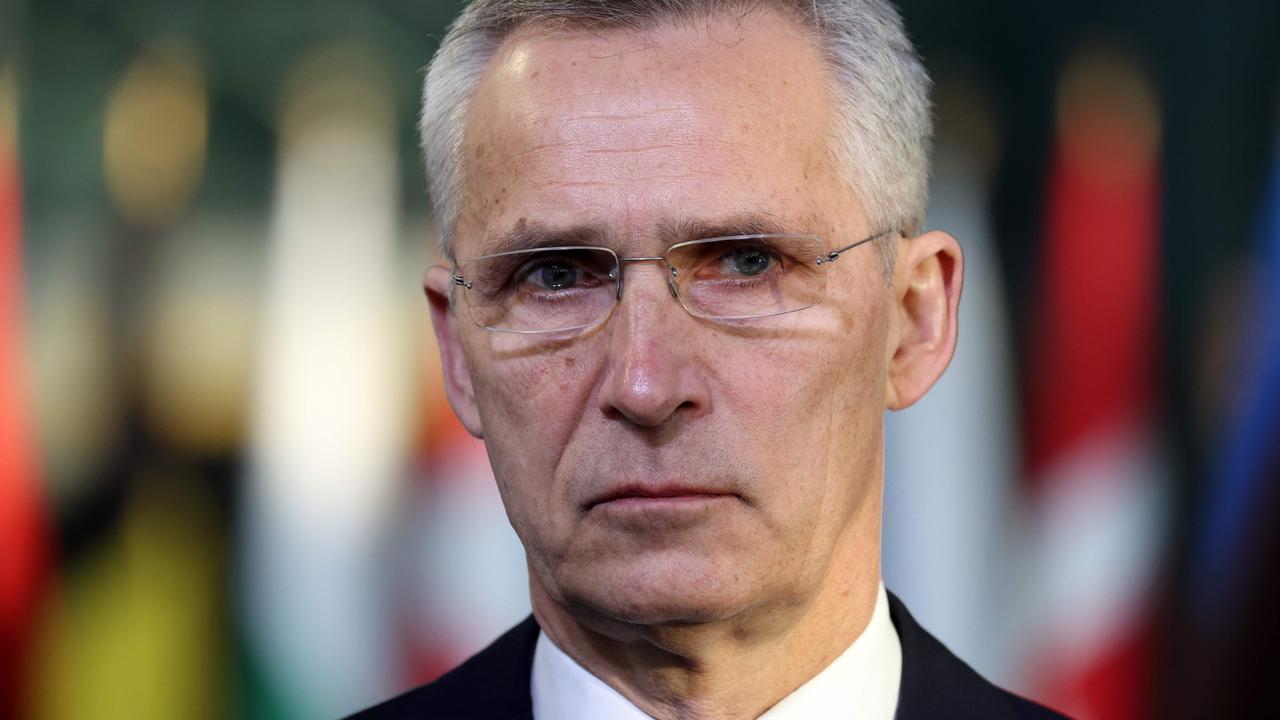
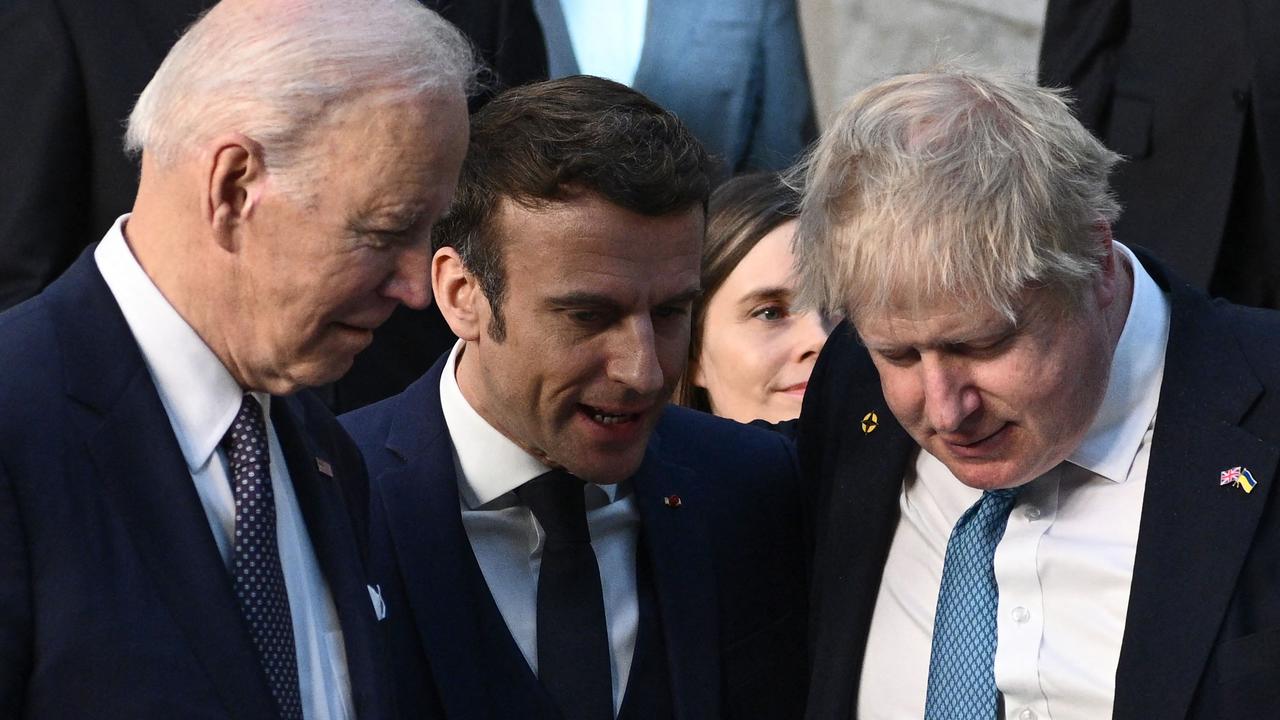
Battle plan
NATO leaders are vowing to bolster weapons deliveries to non-member Ukraine and supply protection against chemical and nuclear threats from Russia.
The United States announced a fresh wave of sanctions against Russian politicians, oligarchs and defence companies in response to the invasion of Ukraine, the White House said.
The measures, which involve freezing US-held assets, single out 328 members of Russia’s lower house State Duma, and 48 defence companies “that fuel (President Vladimir) Putin’s war machine”, said a statement.
💬#Zakharova: We have taken note of the joint statement by the US, UK, Germany, France and Italy on the 11th anniversary of the “Syrian uprising.â€
— MFA Russia 🇷🇺 (@mfa_russia) March 24, 2022
â˜ï¸ This propaganda product reflects the faulty Western interpretation of the events in Syria based on double standards. pic.twitter.com/jCvFNn2j8O
The United States and its NATO allies are also discussing sending anti-ship missiles to Ukraine, a senior US official said, after Russian vessels attacked Kyiv’s Black Sea ports.
“We have started consulting with allies on providing anti-ship missiles to Ukraine,” the official told reporters as a NATO summit got under way in Brussels.
“There may be some technical challenges with making that happen, but that is something that we are consulting with allies and starting to work on.”
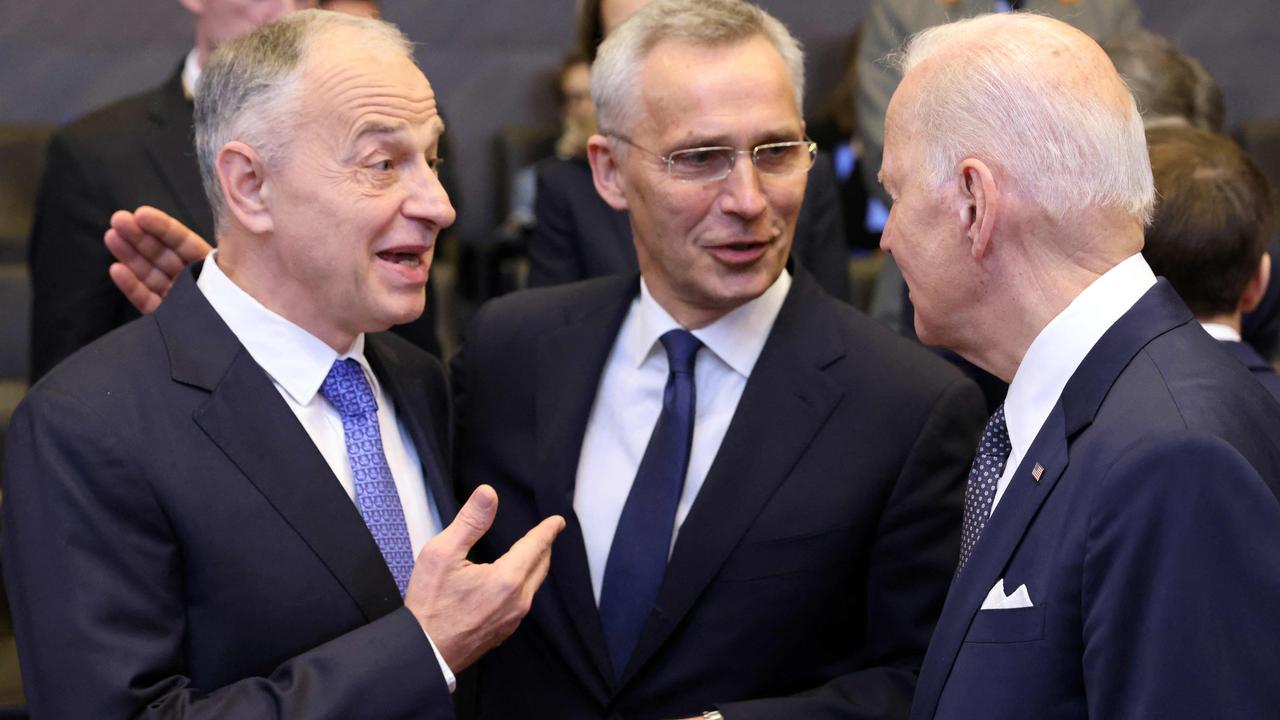
Britain slapped sanctions on 59 more Russian individuals and entities, as well as six Belarusian enterprises over Moscow’s invasion of Ukraine, targeting a shadowy mercenary firm and the world’s largest diamond producer.
“Vladimir Putin has already crossed the red line into barbarism,” British Prime Minister Boris Johnson said in Brussels.
“The harder our sanctions, the tougher our economic vice around the Putin regime, the more we can do to help the Ukrainians, I think the faster that this thing can be over,” he said.
The latest measures, against a range of key strategic industries and people, takes to more than 1,000 the number of Russian and Belarusian individuals and businesses sanctioned by London in recent weeks.
I’m at @NATO where I’ll be urging our allies and partners to step up military and economic support to Ukraine, strengthening their defences as they turn the tide in this fight. We cannot and will not stand by while Russia grinds Ukraine’s towns and cities into dust. 1/6
— Boris Johnson (@BorisJohnson) March 24, 2022
Britain also targeted six more banks, Russian Railways, the defence company Kronstadt — the main producer of Russian drones — and diamond giant Alrosa, according to the foreign ministry.
Mr Johnson says Britain will send 6,000 missiles and £25 million ($33 million) in financial aid to Ukraine’s army to help it fight Russian forces.
The illegal and unprovoked invasion of Ukraine is continuing.
— Ministry of Defence 🇬🇧 (@DefenceHQ) March 24, 2022
The map below is the latest Defence Intelligence update on the situation in Ukraine - 24 March 2022.
Find out more about the UK government's response: https://t.co/4J4hZYA7Jw
🇺🇦 #StandWithUkraine 🇺🇦 pic.twitter.com/tp21Q2TkS9
It will also send provide an additional 6,000 missiles in addition to the 4,000 NLAW’s and Javelin missiles already supplied. Lethal defensive military aid, including Starstreak high-velocity anti-air missiles, will “help Ukrainians continue to defend themselves,” Mr Johnson said.
“Vladimir Putin is already failing in Ukraine.”
Germany says it is sending 2,000 additional antitank weapons to Ukraine to help it repel the Russian invasion, a parliamentary source told AFP, confirming media reports.
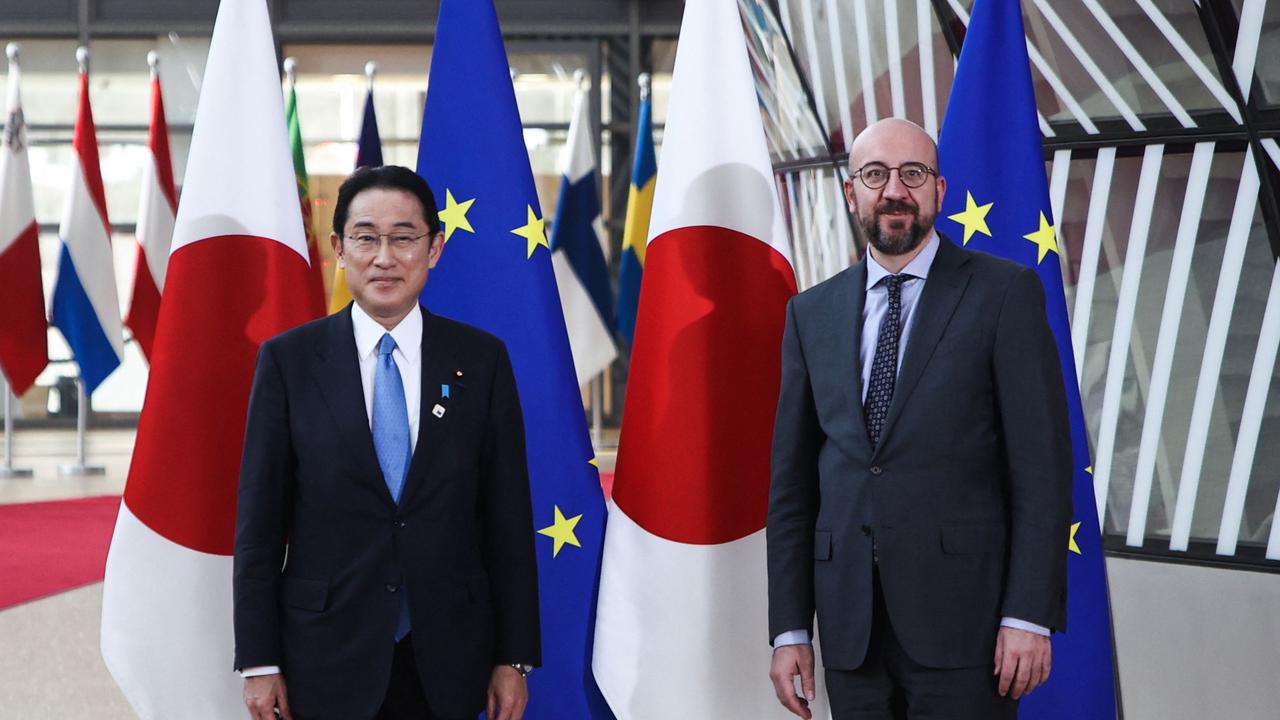
Zelensky speaks
Ukrainian President Volodymyr Zelensky urged NATO to provide Kyiv with unrestricted military aid, one month into Russia’s invasion of Ukraine.
“To save people and our cities, Ukraine needs military assistance without restrictions. In the same way that Russia is using its full arsenal without restrictions against us,” he told NATO representatives via video-link.
While thanking members of the Western military alliance for the defensive equipment provided so far, he appealed for offensive weapons.
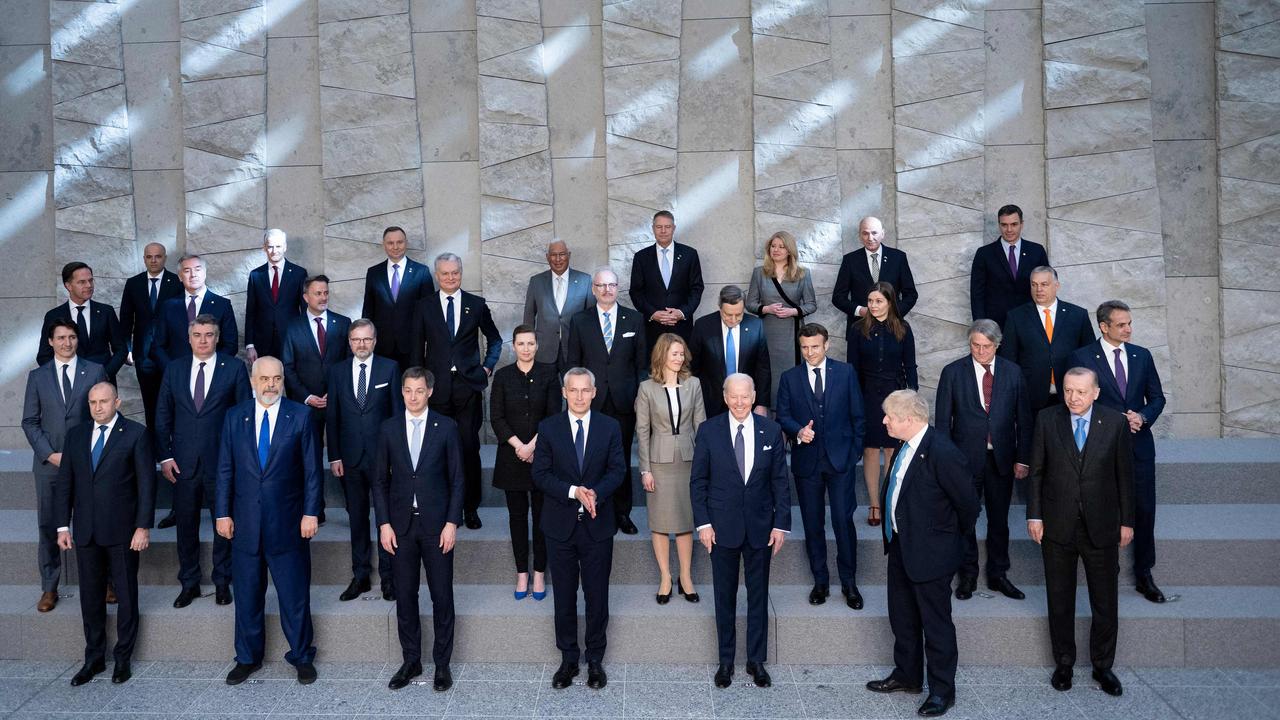
Zelensky also accused Russia of deploying phosphorus weapons, which spread a powder that ignites when in contact with oxygen and causes severe burns.
“This morning, by the way, phosphorus bombs were used. Russian phosphorus bombs. Adults were killed again and children were killed again,” Zelensky said.
“The Alliance can once more prevent the death of Ukrainians from Russian strikes, from Russian occupation, by giving us all the weapons we need.”
“We need to do more, therefore we need to invest more and therefore there is a new sense of urgency,” Stoltenberg said.
“We are determined to continue to impose costs on Russia to bring about the end of this brutal war,” NATO chief Jens Stoltenberg said.
“We have a responsibility to ensure that this conflict does not escalate beyond Ukraine that will cause even more suffering, even more death, even more destruction.”
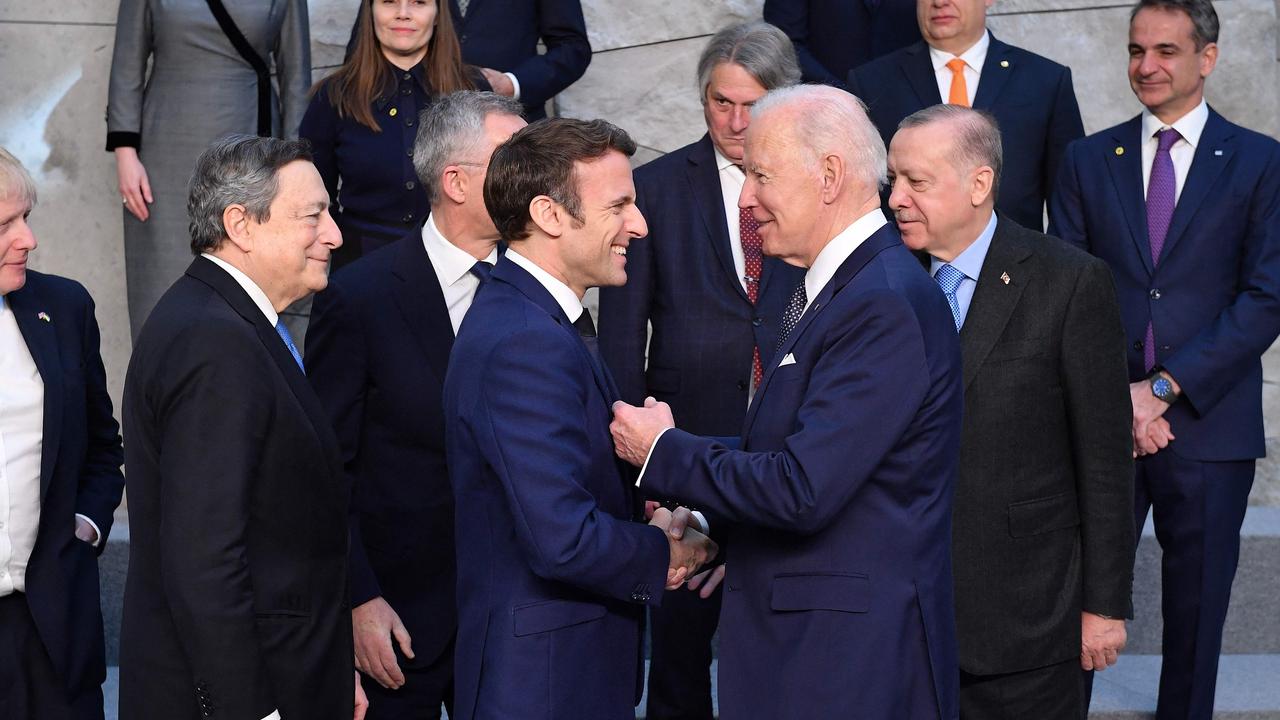
But the alliance has rebuffed pleas from Kyiv to impose a no-fly zone to help halt Russia’s onslaught for fear of getting dragged into a “full-fledged” conflict with Moscow.
“We have a responsibility to ensure that this conflict does not escalate beyond Ukraine that will cause even more suffering, even more death, even more destruction,” Stoltenberg said.
US President Joe Biden warned before heading to Europe of a “real threat” that the Kremlin could use chemical weapons in Ukraine.
Stoltenberg told journalists that “any use of chemical weapons would fundamentally change the nature of the conflict”.
“It will be a blatant violation of international law, and it will have widespread and severe consequences.”





